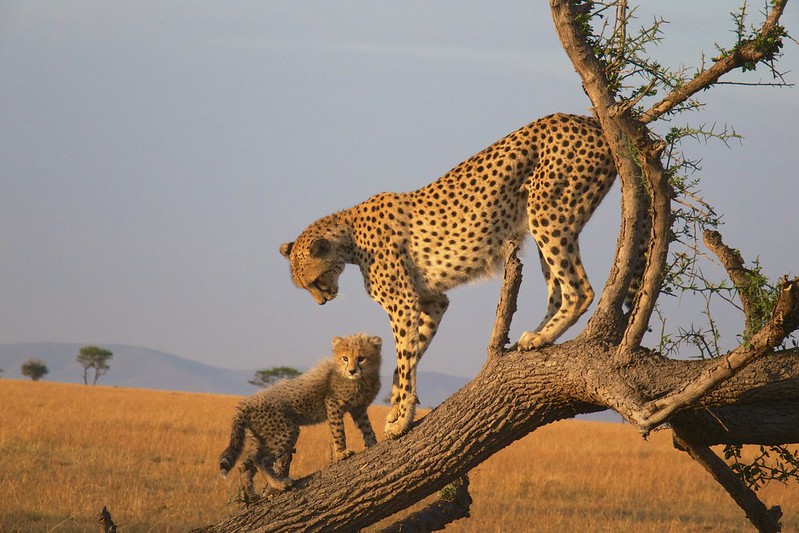Is it safe to go to Africa on a safari?
Many dream of traveling to this wondrous continent to roam the iconic plains and jungle in search of wildlife. The question most of them ask is Is it safe to go to Africa on a safari?
They read about lions and elephants lurking right next to an open jeep in Tanzania and Namibia, and see pictures of people gazing in awe at gorillas just a few meters away in Rwanda and Uganda.
They hear about the thrilling walking safaris in Kenya and envision a night under the stars in a safari camp in the middle of a South African reserve.
These awe-inspiring destinations allow you to get up close and personal with some of the world’s greatest (and most dangerous) animals.
So it makes you wonder, are safari holidays safe?
Millions of travelers go on safari in Africa every year and on average, “perhaps one tourist dies per year as a result of wild animals.” African safari deaths are very uncommon, however all wildlife encounters carry risks due to the unpredictable nature of these wild animals.
You can mitigate these risks by going on safari with expert guides who are well-trained in safety procedures.
we work with the most prominent camps and lodges in Africa, so you can be sure your safety will be the top priority at all times.
It’s also important to brush up on the general safari rules and safety tips before you head off on your African adventure. This will ensure you get the best out of your safari experience and leave a positive impact on the places you visit.
With decades of collective experience on safaris across Africa, our Team are experts when it comes to safari safety, even organising wheelchair-friendly safaris and holidays.
In this comprehensive guide, we’ve rounded up their insights on everything you need to know to stay safe on safari. We’ll also answer all your burning questions including what colours to wear, how to take a toilet stop on safari, why animals don’t attack open jeeps, and essential animal spotting etiquette.
Before you leave
Ensuring your safety on safari begins before you even leave your house.
Vaccinations and medication
The deadliest animal you’ll encounter on safari is the pesky little mosquito.
Be sure to consult a travel doctor for the required vaccinations, stock up on malaria prophylactics and don’t forget to pack a strong mosquito repellent.
You’ll need a yellow fever vaccination for travel to many countries in Africa and will be required to present an International Certificate of Vaccination.
What to pack for your safari
Many safari travelers make the mistake of over-packing, so we’ve listed all the essentials to bring, including what to wear, and what to leave at home.
What to wear on safari
Pack comfortable clothes made out of moisture-wicking materials to help combat the heat.
Wear a hat and light, long layers to protect you from prickly plants, stinging insects and reptiles.
Bring a bandanna or scarf that you can wet and wrap around your neck for extra relief in the hot weather. Depending on the season, you’ll also need to pack some warm layers.
It’s imperative to choose comfortable, sturdy shoes such as boots or hard rubber soles. Wear your shoes for at least a month before going on safari so you know they won’t plague you with blisters.
FAQ: What colours should I wear on safari?
The colour of your clothes can play a big part in the number of animals you spot on safari. The worst colours to wear are white, black and bright colours, as these stand out to most animals and will cause them to flee. Try to blend in with the landscape by wearing dark green, brown and khaki colours. You don’t need to deck yourself out in a cliche safari outfit – simple, comfortable clothing in neutral colours is best.




